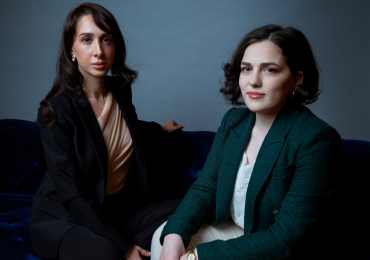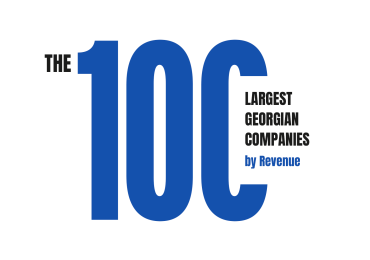The Parliament of Georgia—boycotted by opposition parties for the past five months—has introduced a government-sponsored bill aimed at tightening media regulations. The proposed changes include establishing broadcasting standards, expanding the powers of the Communications Commission, and imposing strict restrictions on foreign funding. The draft law targets TV and radio broadcasters, along with their online platforms and social media channels.
The ruling party claims the initiative is inspired by the so-called British model and is intended to enhance objectivity and ethical standards in the media. However, civil society groups and press freedom advocates see it as an attempt to further suppress freedom of speech and undermine independent media.
This bill is the latest in a series of legislative measures that have faced sharp criticism both domestically and internationally in recent months. The Parliament has already passed laws tightening restrictions on public gatherings and demonstrations.
Inspired by the American Foreign Agents Registration Act (FARA), it also adopted the so-called Foreign Agents Law, affecting both the third sector and independent media. Over 100 local organizations issued a joint statement declaring that these laws are designed to weaken civil society and stifle critical media. Rachel Denber, Deputy Director of the Europe and Central Asia Division at Human Rights Watch, stated that the government is creating a human rights crisis and taking steps toward authoritarian rule.
The proposed media law is being debated in a deeply polarized political climate. The 2024 parliamentary election results remain unrecognized by the opposition and large swaths of civil society. Independent observers documented widespread violations, including the abuse of administrative resources, voter intimidation, and biased media coverage. With the opposition absent, Parliament now resembles one-party rule, and its actions are seen as lacking democratic legitimacy.
One month after the elections, Georgian Dream Prime Minister Irakli Kobakhidze announced that Georgia would not begin EU accession talks before 2028. The announcement sparked massive protests across the country. For more than 120 days, demonstrators have filled the streets of Tbilisi and other regions. During this time, violence against journalists has escalated dramatically. In the past three months alone, law enforcement officers—many without identification—along with violent groups, have obstructed more than 100 journalists. Numerous reporters have been assaulted, and their equipment damaged or stolen. In this context, attempts to further control the media are widely seen as efforts to consolidate ruling party power.
According to Giorgi Davituri of the Institute for Development of Freedom of Information (IDFI), the government’s true aim is not to improve self-regulation—a concept that had been discussed but ultimately rejected. Instead, the changes appear designed to tighten control over media outlets critical of the government.
The Georgian Charter of Journalistic Ethics insists the country already has an effective self-regulation system. Given the timing and context, the intent behind the new regulations seems clear: to curtail media freedom.
UK or Russia? The Model Behind the Legislation
The proposed media regulation package introduces broadcast standards, restricts foreign funding, and removes the requirement for gender diversity at the Georgian Public Broadcaster (GPB).
The first bill outlines ethical principles such as accuracy, impartiality, privacy protection, and consideration of minors. But rather than allowing self-regulatory mechanisms to enforce these principles, the authority to investigate and penalize violations is given to the state regulatory body, the Communications Commission (ComCom). ComCom will have the power to issue warnings, impose fines, or even suspend or revoke broadcasting licenses—raising serious concerns among NGOs about the threat to editorial independence.
The second bill prohibits broadcasters from receiving direct or indirect funding from foreign sources, including foreign state institutions, individuals, and international organizations—with exceptions only for commercial advertising and product placement. Media experts say this disproportionately affects local broadcasters that rely on international financial support and are already under financial strain.
The third change removes “gender” from existing legal language requiring the GPB to reflect social diversity in its programming, effectively eliminating the obligation to ensure gender representation in content.
The government claims these reforms mirror the British model, citing the BBC and the independent regulator Ofcom. But critics argue that the reference to British standards is merely a façade to cloak the Russian-style media control the reforms actually represent.
In the UK, media regulation is upheld by independent bodies—IPSO and Ofcom—that operate free from political interference. The BBC’s editorial independence is legally protected. In contrast, Georgia’s new laws place significant power in the hands of a state body, ComCom, which has a track record of politically motivated decisions.
As Davituri notes, “We should expect the law to be enforced selectively. It won’t apply to pro-government media, while critical outlets are likely to face severe consequences.”
Institutional Risks: Who Regulates the Regulator?
The judiciary—tasked with adjudicating media disputes—faces serious questions about its independence, much like the Communications Commission. Both domestic and international observers have reported the existence of a so-called “judicial clan” controlling the court system. Following Georgia’s EU candidacy, the Venice Commission criticized the country for failing to ensure genuine judicial independence. Several influential judges have since been sanctioned by the U.S. State Department for corruption and political bias.
According to State of Democracy in Georgia 2020–2024 by Transparency International, “The U.S. sanctions against judges leading the ‘clan’ reveal how deeply entrenched corruption is in the judiciary. This government-controlled judiciary has played an active role in persecuting political opponents and critical media.”
The vague language of the new laws presents another problem. Ambiguity in the legal provisions threatens media independence and opens the door to censorship and self-censorship.
The Georgian Charter of Journalistic Ethics argues that the new restrictions will limit journalists from asking public officials questions in public settings—questions that serve the public interest. This would impede investigations into corruption, rights abuses, and social issues, all of which may be politically inconvenient for the ruling party and its supporters.
Defamation lawsuits are also on the rise. According to the Georgian Democracy Initiative (GDI), recent years have seen a sharp increase in SLAPP (Strategic Lawsuit Against Public Participation) cases targeting media and human rights defenders, with courts frequently ruling in favor of the plaintiffs.
The foreign funding ban poses a direct threat to the financial viability of independent media. The Social Justice Center (SJC) argues that the restriction serves no legitimate public interest and violates the public’s right to access diverse viewpoints.
Transparency International Georgia echoes this concern, warning that cutting off foreign funding could destabilize critical media outlets and tilt the information landscape in favor of Russian and anti-Western propaganda. As the organization put it, “The weakening—or total disappearance—of independent TV channels would give an advantage to those spreading disinformation and anti-Western rhetoric.”
Shota Dighmelashvili, Editor-in-Chief of Forbes Georgia, notes, “When regulation becomes a tool for silencing dissent, we’re no longer talking about policy, we’re talking about power.”
Despite widespread criticism, public protests, and appeals from civil society, the Parliament – without opposition participation – has now passed the full package of media regulation laws. While some degree of oversight is necessary in any democratic society, the critical question remains: Who regulates the regulator? And how can one distinguish between genuine standardization and political interference—especially when institutional independence is under threat?
The consequences of this legislation will reverberate far beyond the media sector. They will shape the trajectory of Georgia’s democracy, and its path toward European integration.













